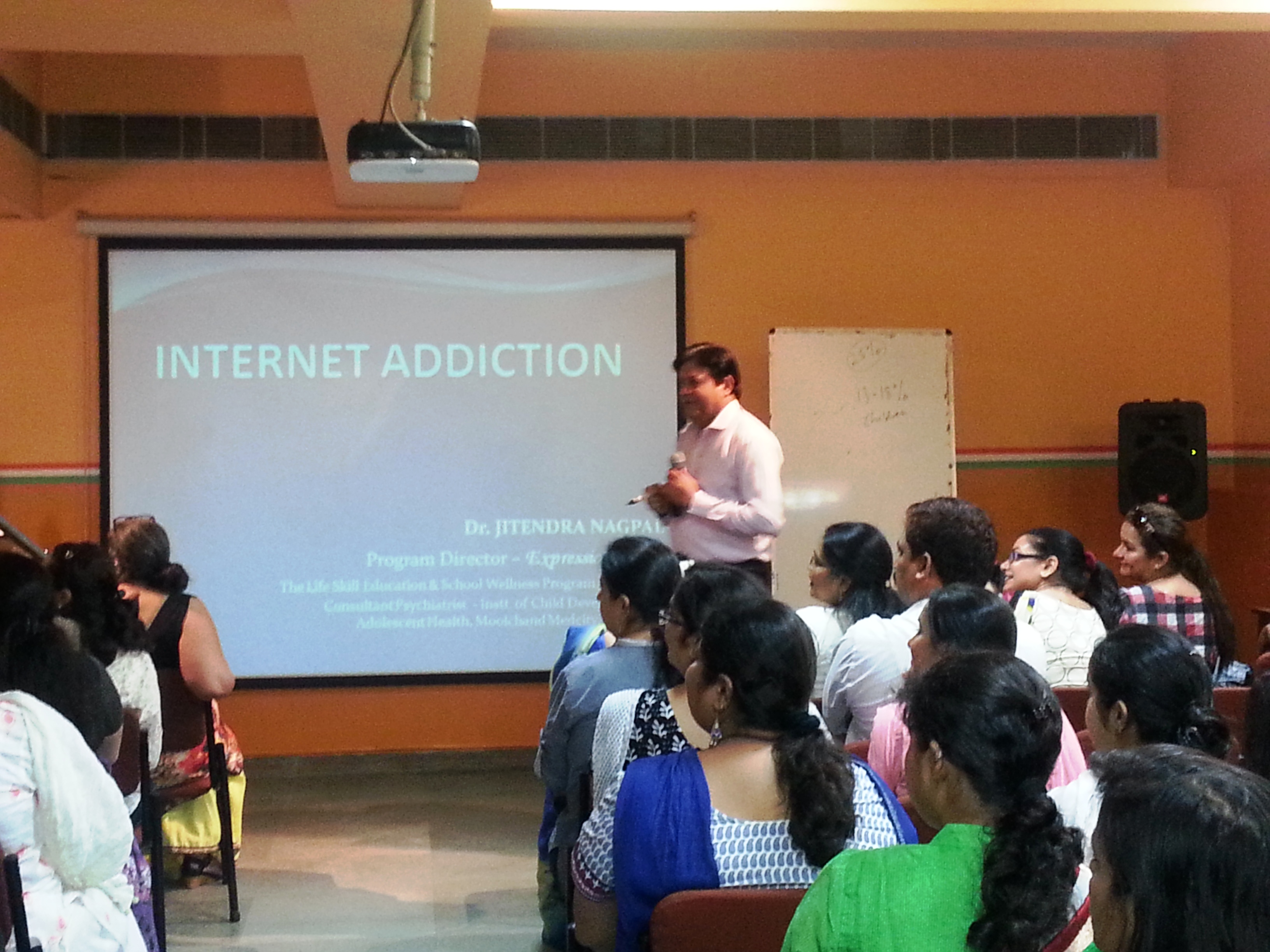INTERNET ADDICTION-a workshop by Dr. Jitendra Nagpal
A workshop for parents and teachers was organised at School on 28th June, 2014. The subject was very topical, Internet Addiction and the speaker was Dr. Jitendra Nagpal. Dr. Nagpal is a consultant psychiatrist with a special interest in adolescence and early childhood disorders.
Dr. Nagpal began by showing us a visual presentation of how Internet addiction leads to drug addiction in about 13-18 percent of our teenage children today! This figure holds especially true in the light of the fact that our country is home to cannabis ( charas) that grows wild throughout northern India.
According to him, the excessive use of the internet is fast becoming abuse among children, making them more vulnerable to high risk behavior. As an alarming piece of news, he presented a graph which showed that Asians top the list of the highest users of the internet in the world. Equally shocking was to learn that Indians are the highest users in Asia.
Dr. Nagpal next explained the Internet Gaming Disorder. It is a mental or a behavioral disorder common among todays young generation. While time spent online can be hugely productive, compulsive internet use can interfere with daily life, work, and relationships. When users, especially children start to feel more comfortable with their online friends than their real ones, or cant just stop themselves from playing games or gambling, they may be regarded as suffering from this disorder. The after-effects of over exposure are disastrous, with a decline in health, gross academic decline, the desire to stay a loner, etc.
Dr. Nagpal said that children begin to live in a virtual world, ignoring the real world where they s are possibly subject to rejections, failures or in many cases, acute family problems. The virtual world comes to them as a breather at such times and they find solace in it.
Some physical manifestations of internet addiction, as told by Dr. Nagpal are dry eyes, migraine, backache, eating irregularity, sleep disorder, failure to attend to personal hygiene and the Carpal Tunnel Syndrome ( pain near the wrist). There has been a steep decline seen in academic results also of such victims in recent surveys. Incomplete assignments, peer intolerance, indiscipline, reduced focus and absenteeism are some of the signs of academic manifestation of the addiction.
Dr. Nagpal said the first and the most important step for us, as parents and teachers is to communicate with our children and give them a hearing. It is important to make them realize that in times of need, it is the family that stands by their side. The emotional connect between the parents and the children is crucial to the relationship, without which children usually succumb to such transient pleasures. A major responsibility falls upon us as adults to help them out of the ordeal through the three Cs- Care, Compassion and Communication.
He quoted cases where children resorted to internet gaming in dearth of time and support from their parents. He suggested that our School host open fora in which parents, teachers and children come together and share their problems openly.
The last slide of his presentation said E-volve..not dissolve, with a pictorial representation of how an ape gradually evolved and stood tall as a man and today man is stooping lower and lower physically, to accommodate himself before his computer!
The message of the workshop was loud and clear. We as teachers and parents have great responsibility upon our shoulders to draw back our children from the hazards of internet addiction before we lose them to the catastrophic effects of the virtual world.
-Reported by Ms. Gandharvi Mukherjee.













